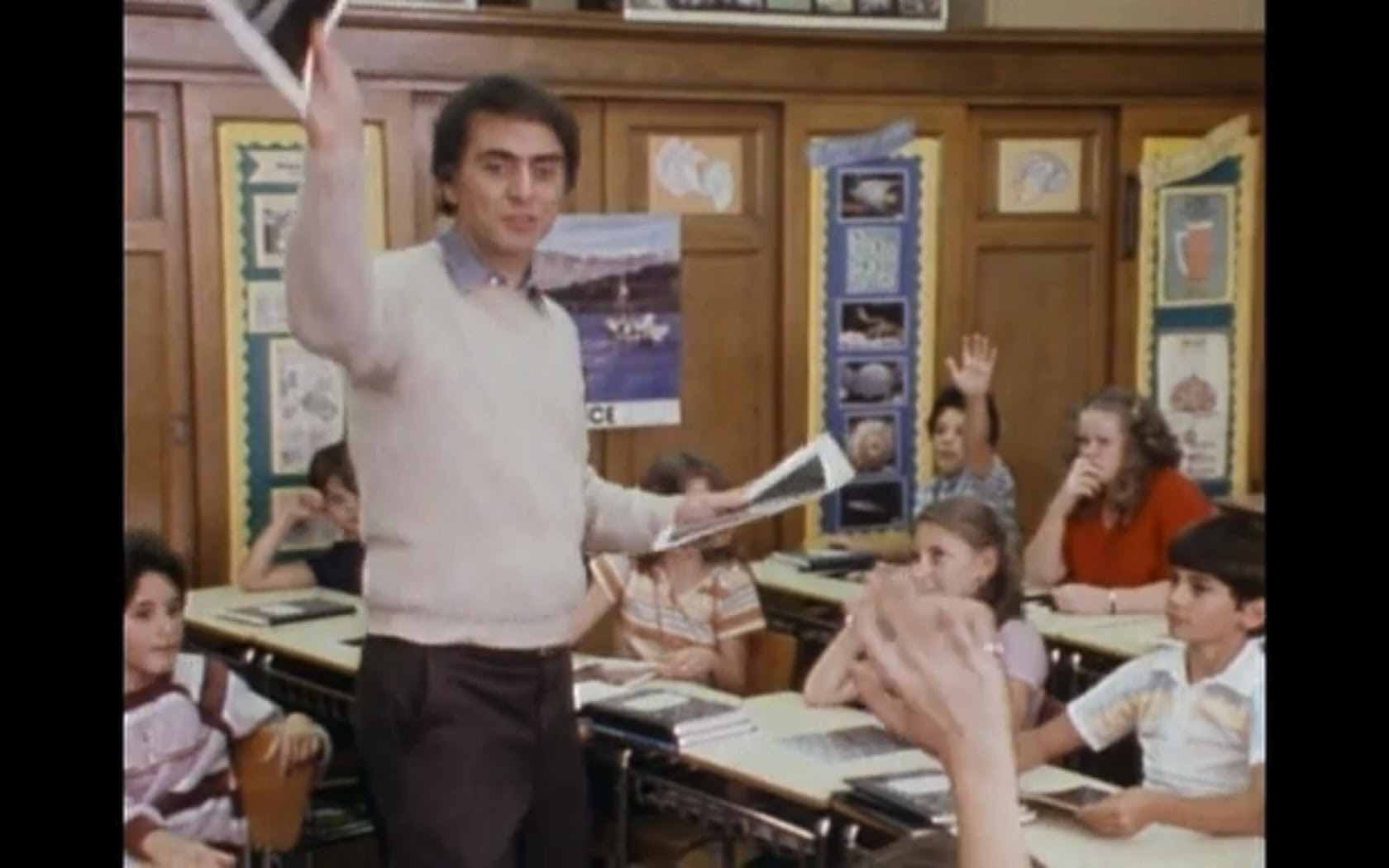I really love Cosmos.
If I had children,
when I have children (should I be so lucky), I would/will show it to them the moment they start to reason and understand. There's just something about the way Carl breaks down such complex topics as our place in the stars and relates it to the history of man, civilization, and science that makes it so interesting and awe-inspiring.
This particular episode of the series talks about not only the early concepts of the Earth, the Sun, and the stars, but also deals with a lot of the pushback that has occurred in history concerning science.

Now, you'd immediately think from that sentence that he went after the Dark Ages and the Inquisition and the like, but no. Instead, he explores and explains a source of suppression that I really wasn't expecting... especially since it comes from a name that I've been taught to revere for decades thanks to its intimate connection with how we learn mathematics.
Pythagoras.
Yes, the man whose name reminds us of one of the most fundamental formulas in algebra, was party to the suppression and persecution of observational scientists whose ideas and experiments may have contradicted his belief in the five perfect solids.
I'd never known... or, at least, never
absorbed the information before that one of the hallowed forefathers of math and science was himself a sort of mystic who considered the fifth form, the dodecahedron, to be too dangerous for the public to consume and thusly had to be hidden from their hearts and minds. That sort of behavior seems antithetical to me.
Yet, here we are... and there I was, learning about it from Carl as he traced the line of thought from Aristarchus to Kepler to today.

I was especially fond of this episode's classroom sequences, where Carl speaks to a room full of elementary students about images taken by Voyager of the other planets in our solar system. To see the wonder in their eyes and hear their excitement as he passed out the photos, then see the gears turning in their minds as he gave a quick demonstration on detecting planets by their star's wobble.
Fun stuff!
As I said before, I love Cosmos. Every episode fills me with a sense of wonder and understanding, even as I know that I am thoroughly ignorant, a babe in the woods. This episode is no different from the others in giving me that feeling.
One thing that does stand out, though, is one of my favorite Sagan lines... that "the sky calls to us... if we do not destroy ourselves we will, one day, venture to the stars."
My main fear in life and living is that his couched warning will come to pass... that our current and continuing willful disregard for ourselves, our neighbors, our future generations, and the nature, fauna, and planet we call home will lead us to destroy any possibility of spreading out to other stars and worlds... that we will be a footnote in the cosmic history, doomed by our own hubris and petty jealousies and bickerings to die out, having poisoned our world beyond sustainability before we step out into the stars.
I think that and despair... yet, somehow, I still have some small measure of hope.
I wish he were still here with us, but I'm also glad he's gone so he wouldn't have to live in this current anti-science climate.
Until tomorrow, Potatoes~